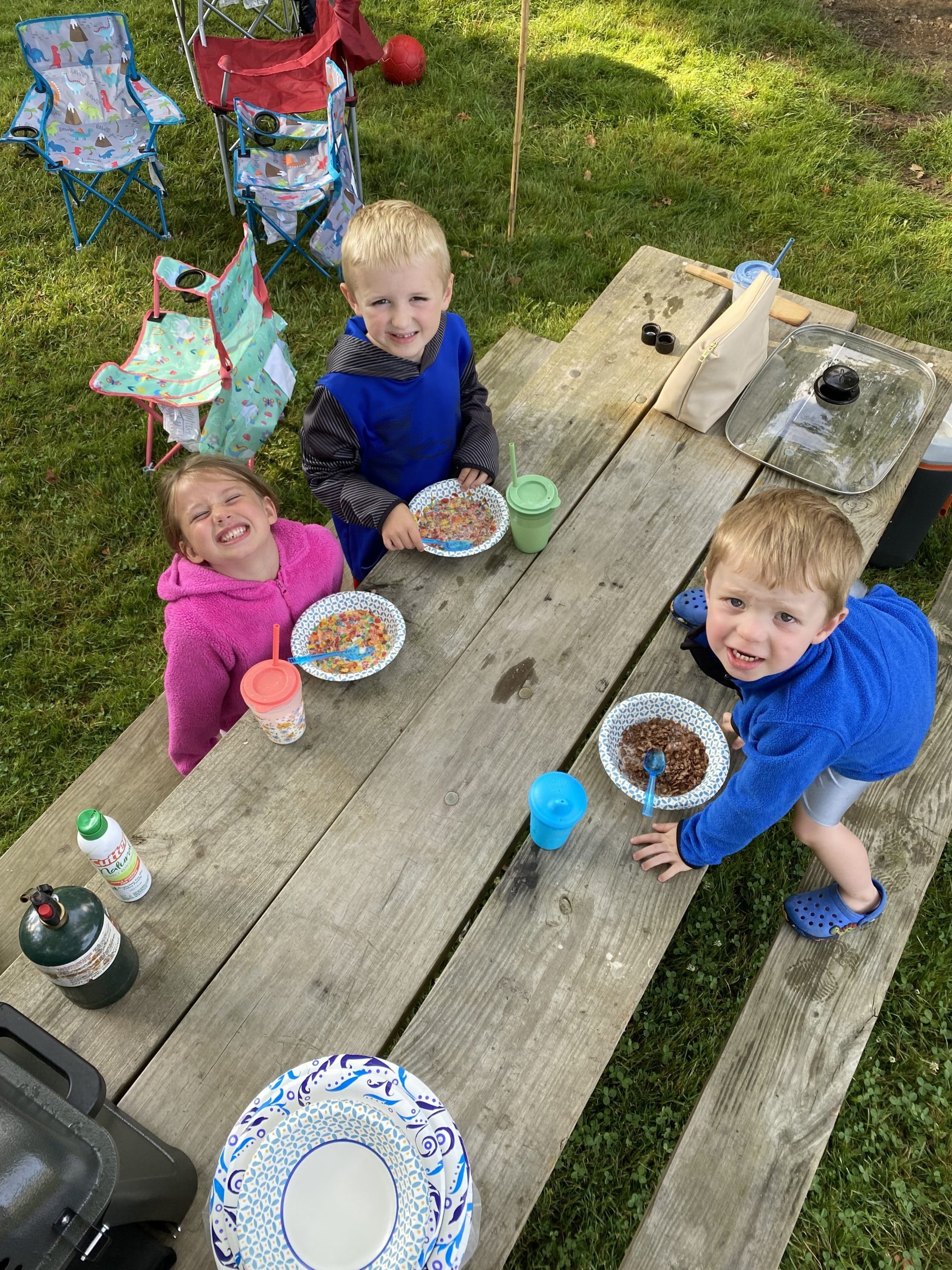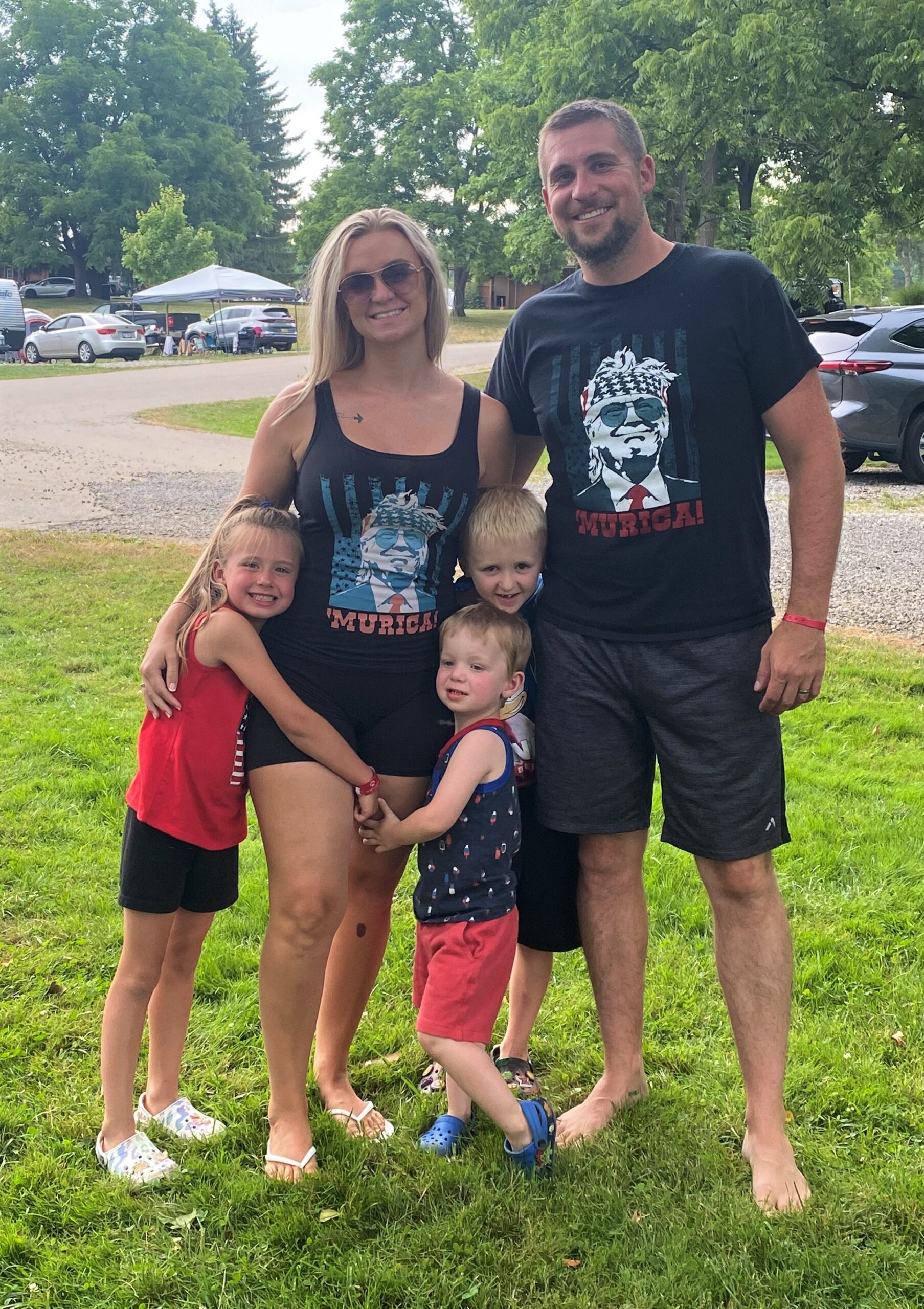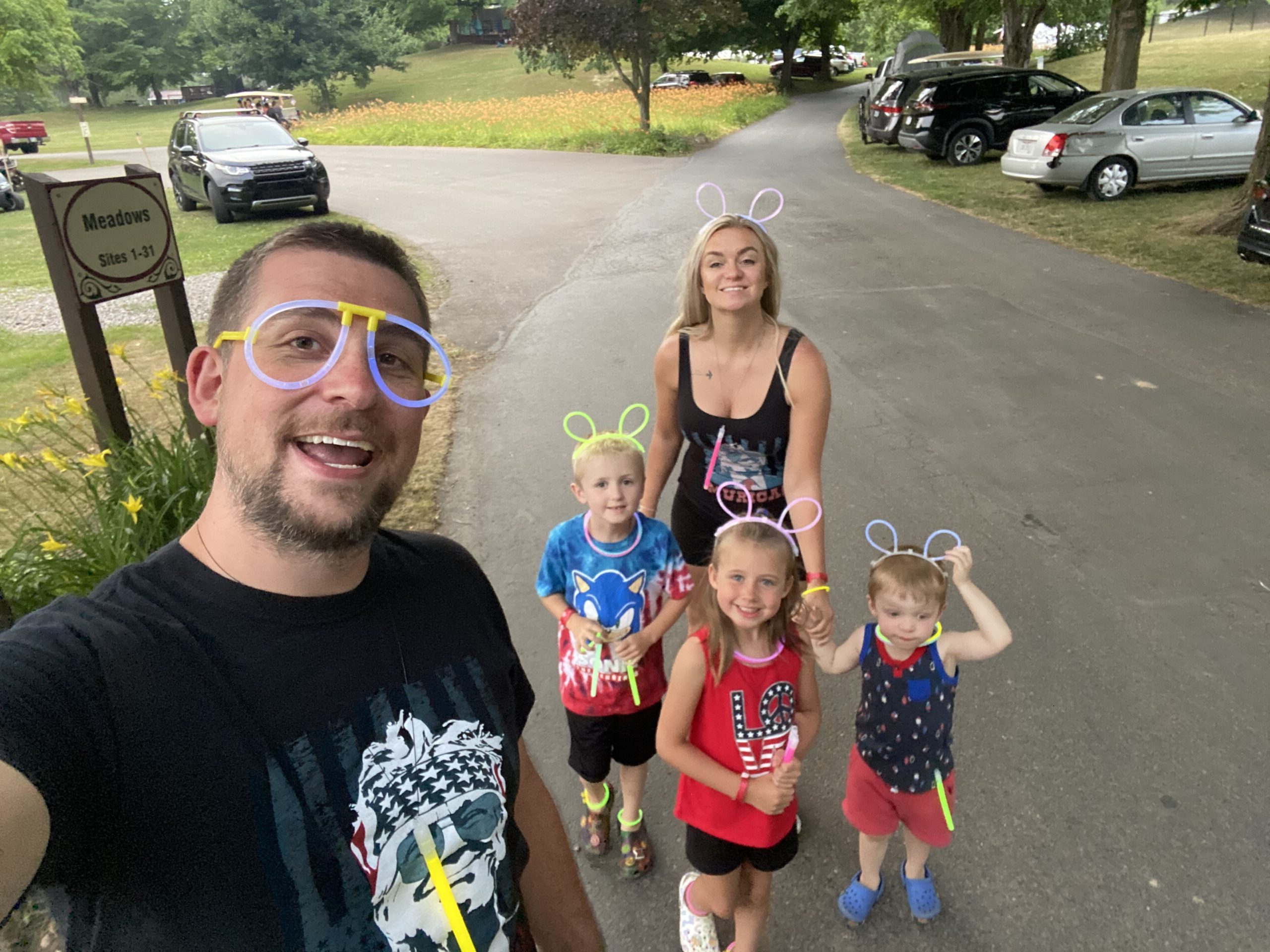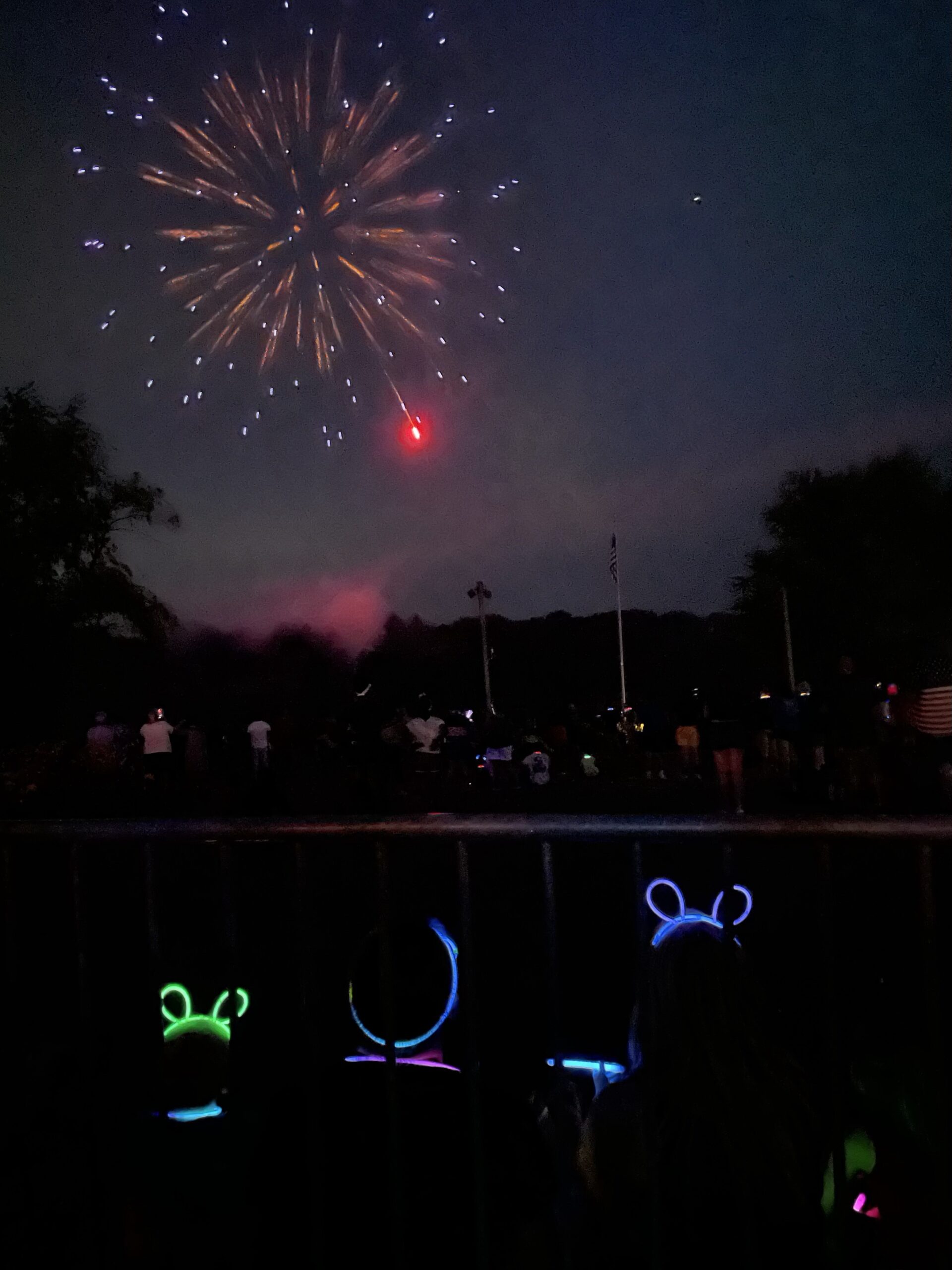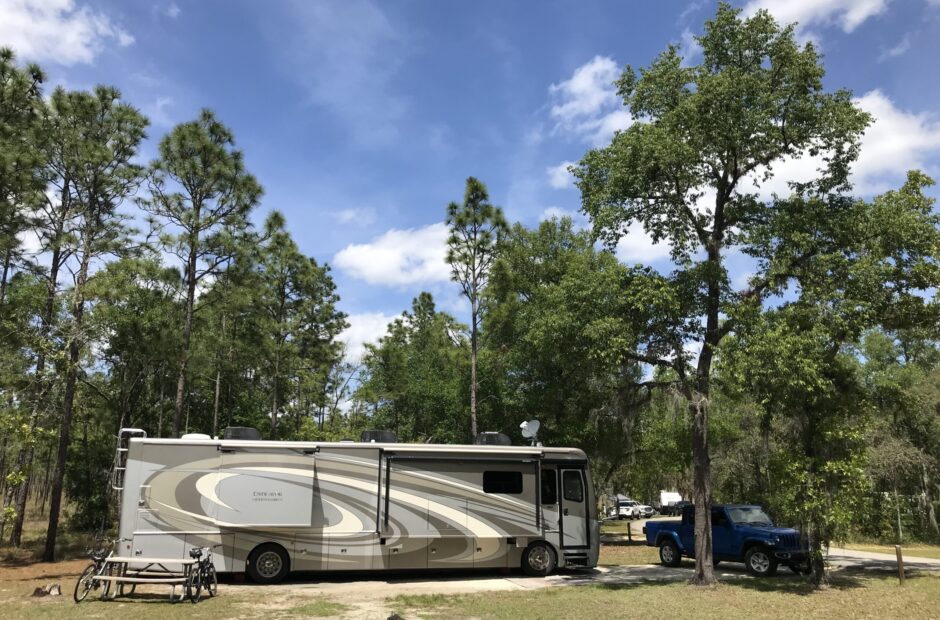Bull Run Campground, Centerville, Virginia
Then Joseph brought his father Jacob in and presented him before Pharaoh. After Jacob blessed Pharaoh, Pharaoh asked him, “How old are you?”… “The years of my pilgrimage are a hundred and thirty. My years have been few and difficult, and they do not equal the years of the pilgrimage of my fathers.” Then Jacob blessed Pharaoh and went out from his presence. ~ Genesis 47:7-8 Imagine a 25 to 30-year-old man gazing upon the countenance of a 130-year-old man. I did some research and discovered that the average lifespan of ancient Egyptians was only 30-35! Those few who lived to 60 or 70 were revered because they believed the gods showed favor upon them. And in walks Jacob. He was not only older biologically, but most likely looked even older because of his life spent in hard labor out-of-doors, and the grief that held him in its grip for so many years, as well as the constant family drama that must have been part of his life. From the days of Adam until Noah, it was not uncommon for men to live to be 900, or even more (the oldest was 969). After the flood, lifespans began dwindling. Abraham (Jacob’s grandfather) lived to 175. Isaac (Jacob’s father) was 180. Jacob, 147. Joseph 110. The Pharaoh that most scholars believed was in power at the time (Sesostris III) lived to 37. Is it any wonder that he was so blunt as to ask Jacob’s age? And because of Jacob’s age, he blesses Pharaoh rather than the other way around. Why? Most likely because God used Pharaoh to take such good care of Joseph, even though he was a captive. And even though Pharaoh ruled a great and powerful nation, he recognized and respected Jacob’s age. Do you respect your elders? (‘your’ being anyone older than you, not just relatives) Or do you find them a burden? Do you seek the wisdom of the aged? Or do you feel they have little or no use in society? God would have us respect and even seek out their acquired wisdom. But nowadays the world often feels just the opposite.

Today was Blaine’s Mom & Dad’s 67th Anniversary!! Isn’t that wonderful?!? What an example they’ve set of godly marriage, parenting, grandparenting and great-grandparenting!
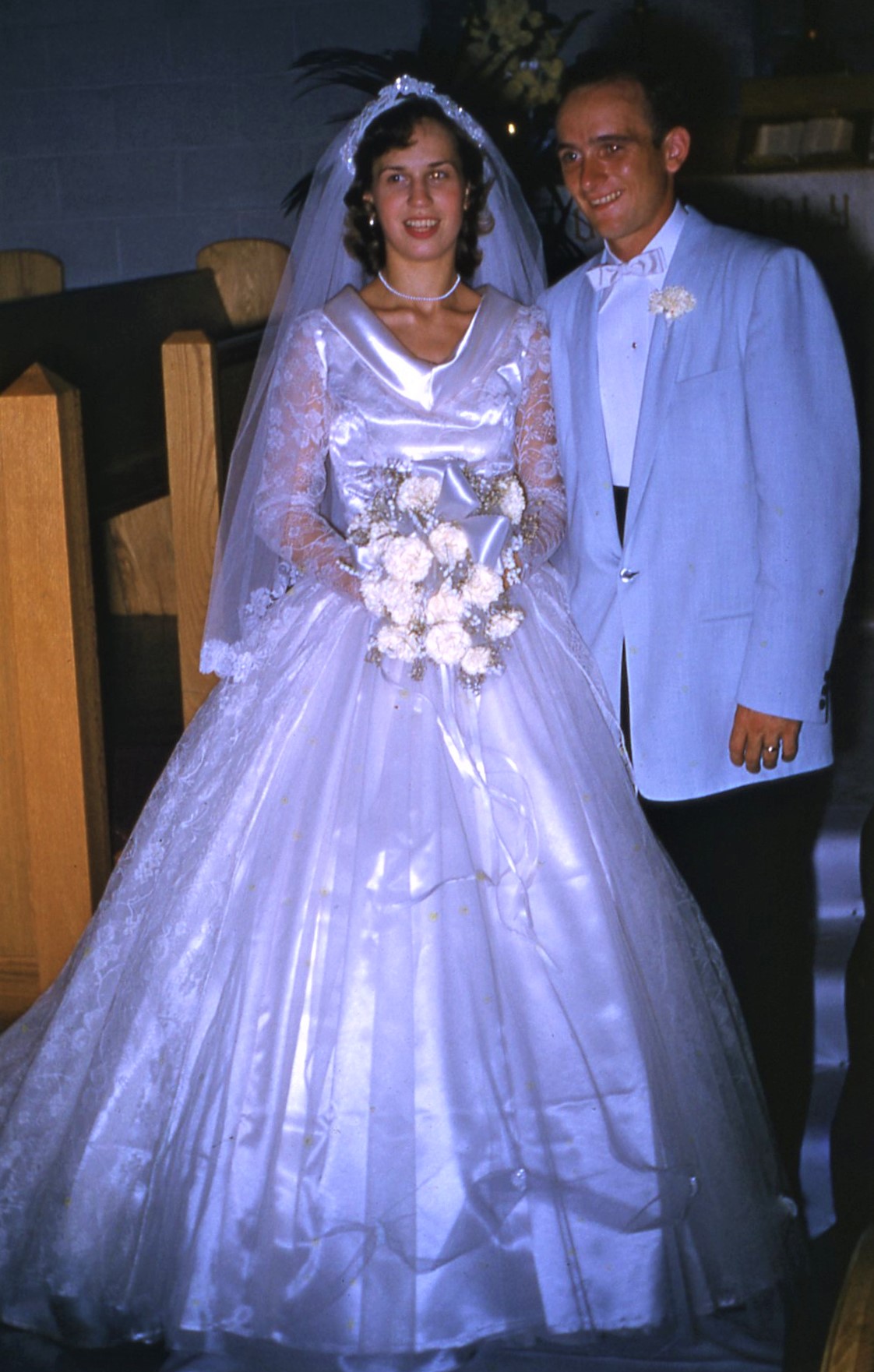
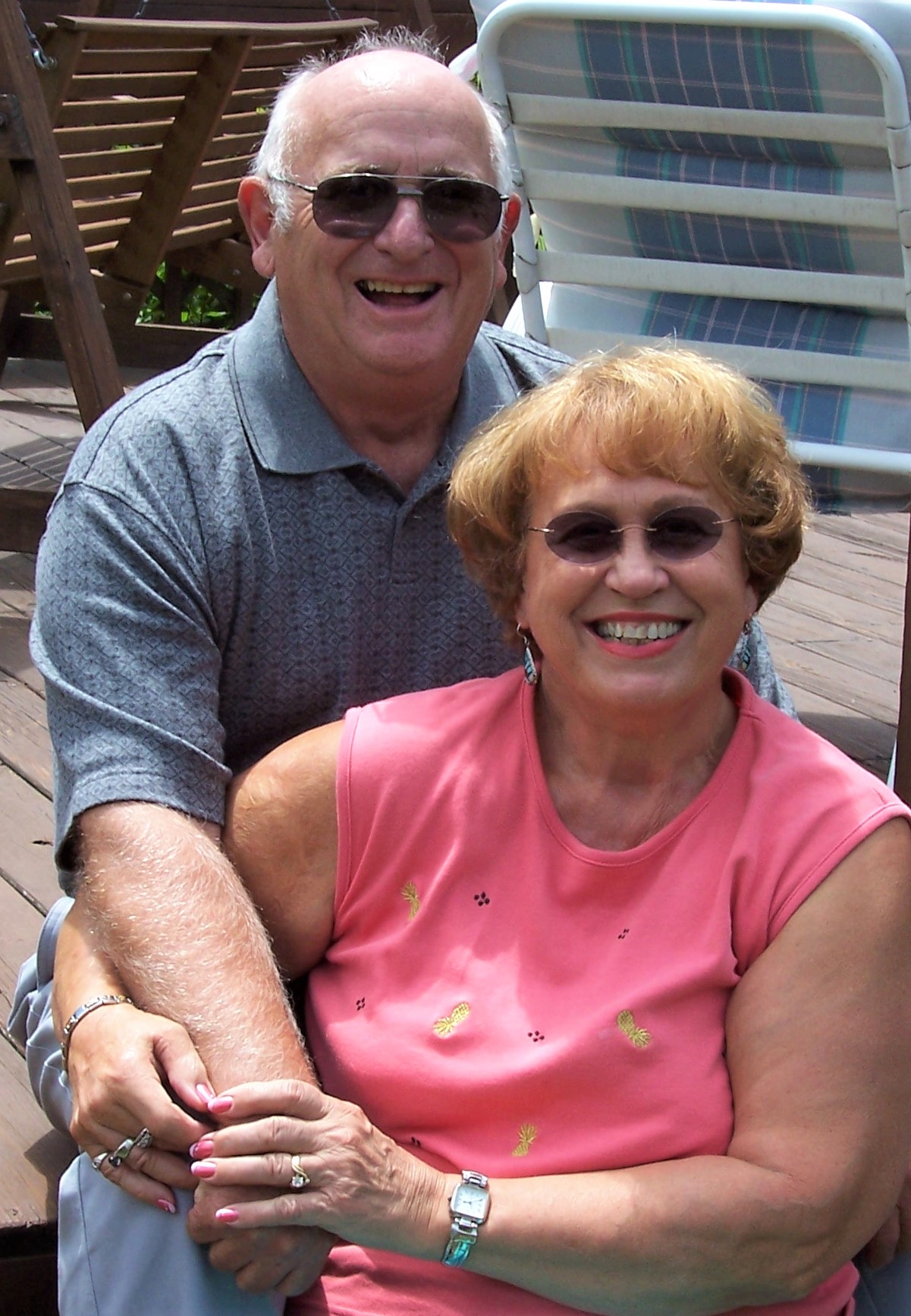
To commemorate (not really), we stopped in at a Wendy’s for lunch today, where I was forced to eat more than I wanted and definitely more than I should’ve! Those four for five meals they offer seem like something you can’t pass up, but it’s waay more food than one person should eat. And yet, we managed. heavy sigh and eye rolling… It sure was good though!
We’d recently discovered that Manassas National Battlefield Park was only eight minutes from our campground. If you’re from the northern states, you may know it better as the Battle of Bull Run. Why the different names? That’s something we learned today!
The division of North and South in our country ran very deep. So deep, it even affected the way men named their battles. The South named them after whatever town was closest; in this case, Manassas. The North, on the other hand, named theirs for a body of water or landmark; in this case, Bull Run Creek. We’re from the North, hence, Bull Run.
In truth, everyone (including the public) expected the first major battle of the Civil War on July 21, 1861 (three months after Fort Sumpter) to end the war. People actually came out to picnic and watch! Both sides suffered much heavier casualties than either of them expected – including the loss of spectators. In looking for some information to share, I happened to run across civilwarmed.org. It’s actually a website dedicated to Civil War medicine and titled “National Museum of Civil War Medicine”. Quite interesting! Below are a few small samples from their report on the first battle of Manassas (the small numbers are their references, but I didn’t look for those):
Introduction This study examines the unnecessary deaths at the First Battle of Manassas, July 21, 1861, initiated by unprepared armies and hordes of spectators congesting the fields and roadways. Manassas was the first major battle on American soil since the War of 1812. The Union Army had 35,000 soldiers: 1,011 wounded, 481 killed, and 1,216 missing;[1] while the Confederates had 29,188 soldiers[2] with 1,582 wounded, 387 killed, and 13 missing.[3] The intent of this paper is to demonstrate how after forty-nine years of relative peace, both armies misunderstood the realities of a major battle, thus resulting in a lax view of Army Regulations, especially in staffing and supplying the medical corps and providing the necessary tools to save lives. Along with both governments’ misconception of actual war, many soldiers and members of the general public followed suit, having romantic notions of battle and glory.[4] These circumstances combined to cause the unnecessary death of soldiers at Manassas.
When the rebellion commenced in 1861, each Northern state provided and supplied its own army regiments, each of which included one surgeon and an assistant surgeon.[27] At Manassas, the Union had seven brigades with five batteries engaged in the battle—Porter, Burnside, Franklin, Willcox, Howard, Sherman, and Keyes[28]–with an average of four regiments in each.[29] According to Captain Louis C. Duncan of the Union Medical Corps, there should have been eight field hospitals and eight ambulance companies prior to the battle of First Manassas, with six of these hospitals placed near or at the town of Centreville.[30] Yet, the only Union field hospital on July 21 was Sudley Church, located two-tenths of a mile from the battlefield. The church-hospital received some 300 wounded that day.[31] This temporary hospital quickly became overwhelmed by the battle. Furthermore, the unexpected rout of the Union forces caused a chaotic retreat, which further complicated the ability of the overtaxed medical facility to care for their wounded. Panicked soldiers and fleeing spectators blocked attempts to aid the wounded, sometimes leaving them where they fell. Pre-War Atmosphere In Washington, Richmond, and many smaller towns and hamlets like Centerville, VA, there were several days of pre-war gaiety, with a carnival or festival-like atmosphere.[32] Both sides felt they would quickly conquer the other, making the battle swift and decisive. The Union believed they would be in Richmond soon after the encounter, while the Confederates were ready to march onto Washington in their victory parade. Some excited Union supporters printed tickets to a grand victory ball in Richmond, while politicians and the general public on both sides loaded into carriages, rode horses, or walked to the battlefield.[33] It was reported some spectators had field glasses, sandwiches and champagne[34] and “thousands” were in attendance.[35] Whereas, observer Edward Pollard, explained, “a stream of visitors …set out from Washington, thronged with gay women and strumpets going to attend ‘the Manassas Races.’”[36] William H. Russell reported that at the beginning of the battle he and his friends, while resting in the shade of their buggy, “made a feast on … sandwiches.”[37] Furthermore, it was reported, some “civilian onlookers would wave their hats and fluttered their handkerchiefs” as if at a sporting event, vying for their favorite team.[38]


This battle cost around 3,000 Union casualties and 1,750 Confederates. Its outcome sent Northerners who had expected a quick, decisive victory reeling, and gave rejoicing Southerners the false hope that they could pull off a swift victory.
Despite the fact that the war raged around the town and the civilians were hanging out watching, there was only one civilian death. It was an elderly bedridden woman whose home was in the middle of the battle.
Did you know that there were actually two battles here? They were thirteen months apart, and they’re both considered Confederate wins.
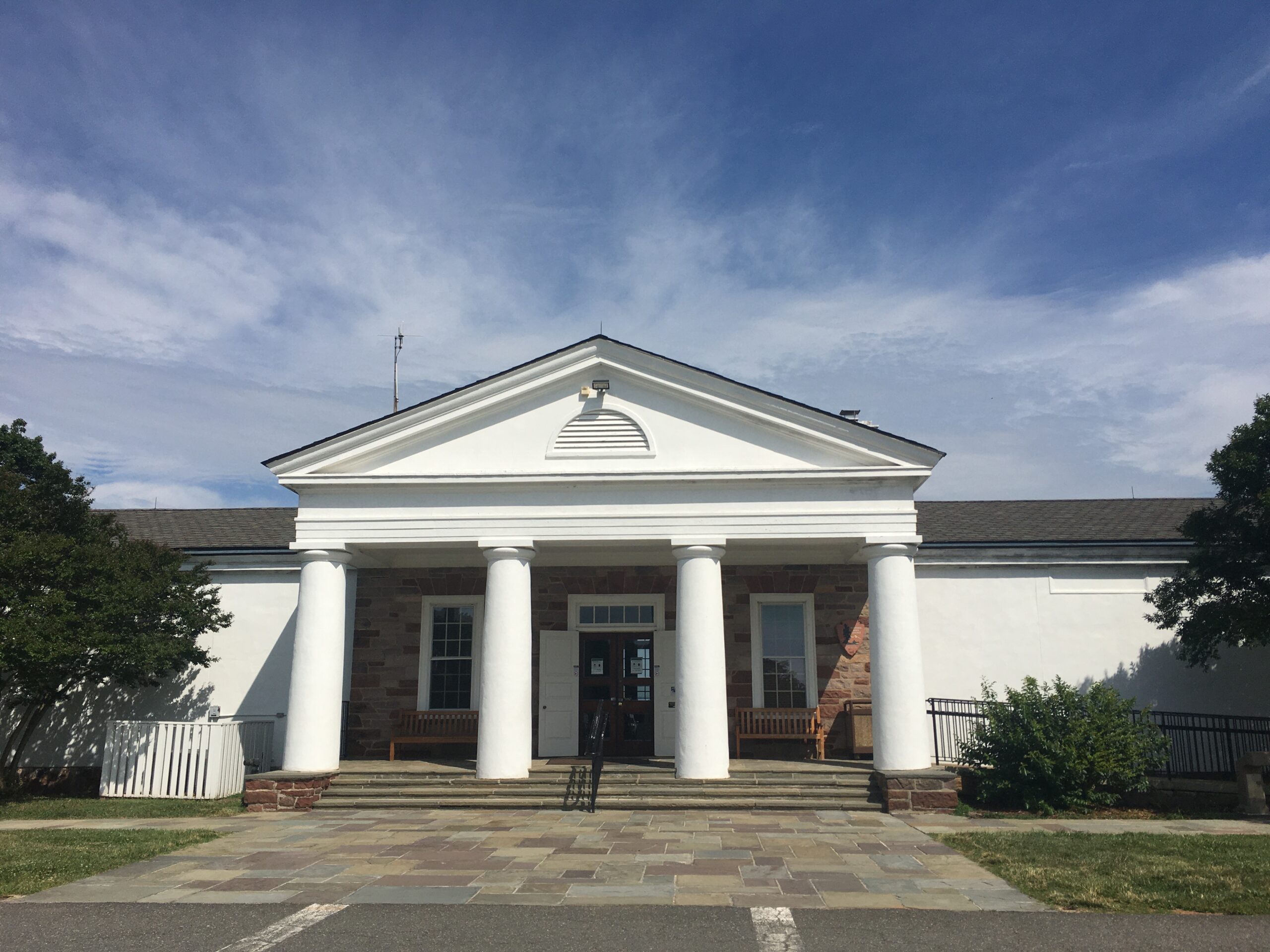
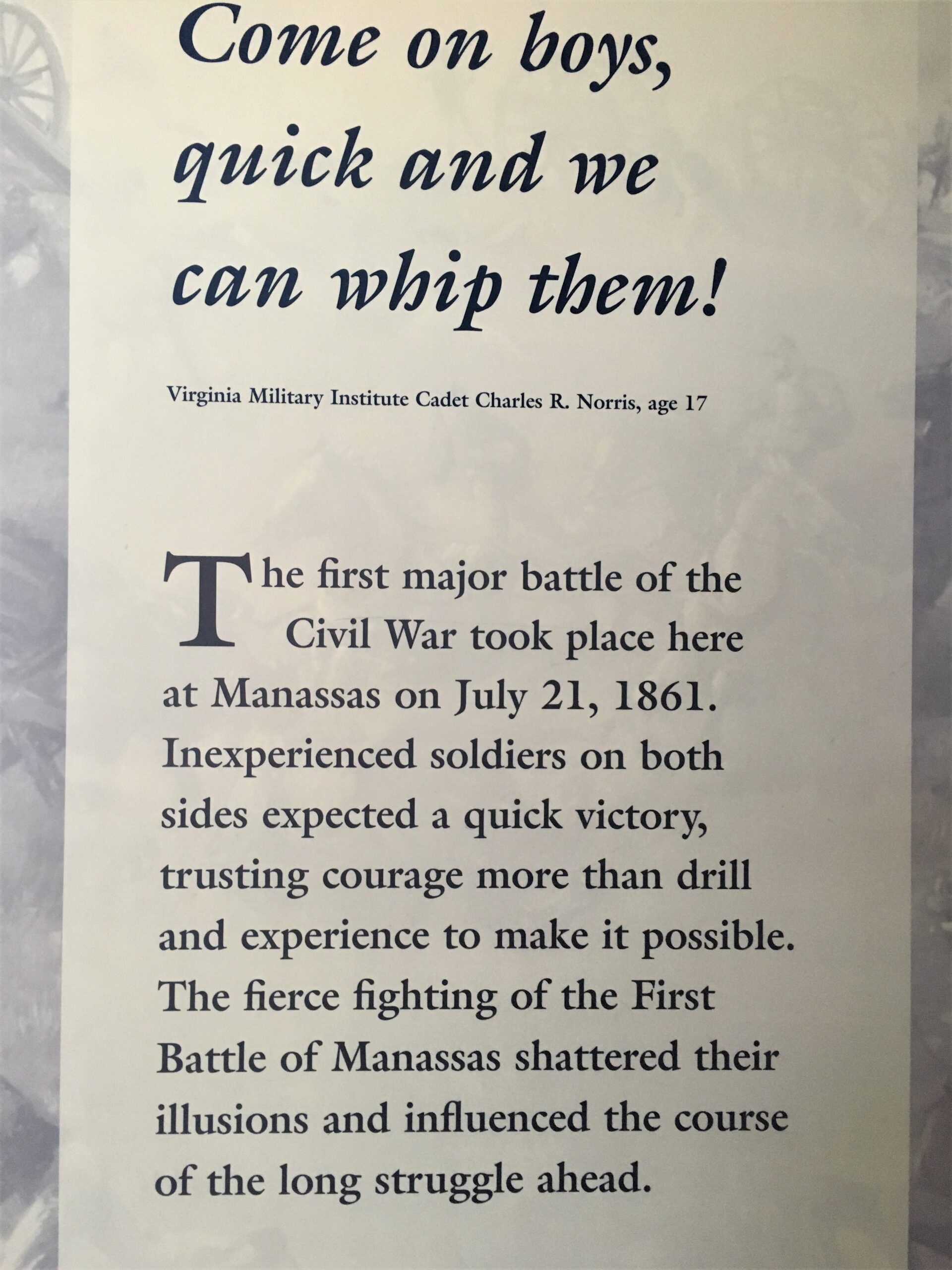
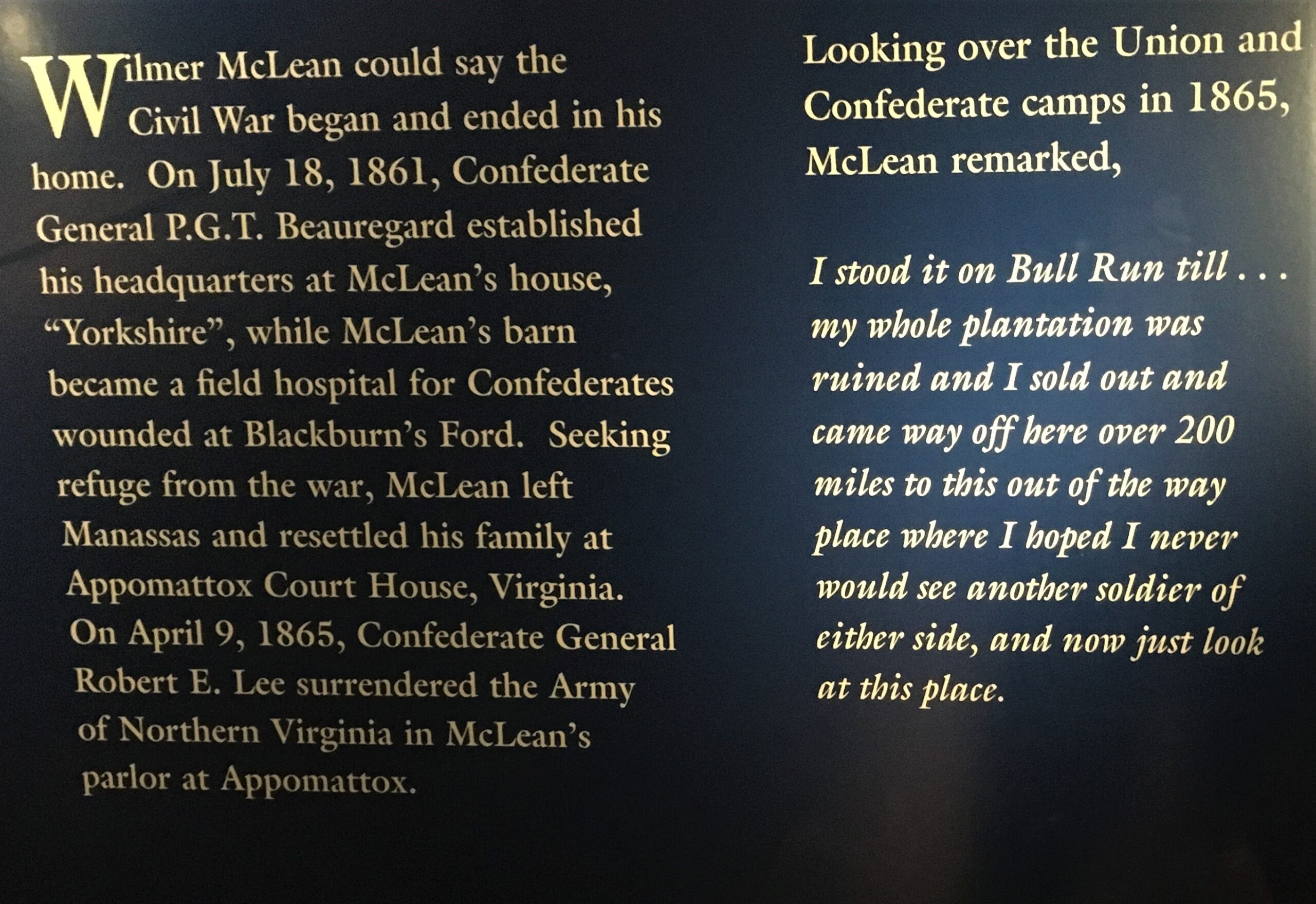
And yet, no one ever talks about him.
By the way…I never realized that Appomattox Court House was the name of the town! I
always thought it was a court house in Appomattox, Virginia! Silly girl!
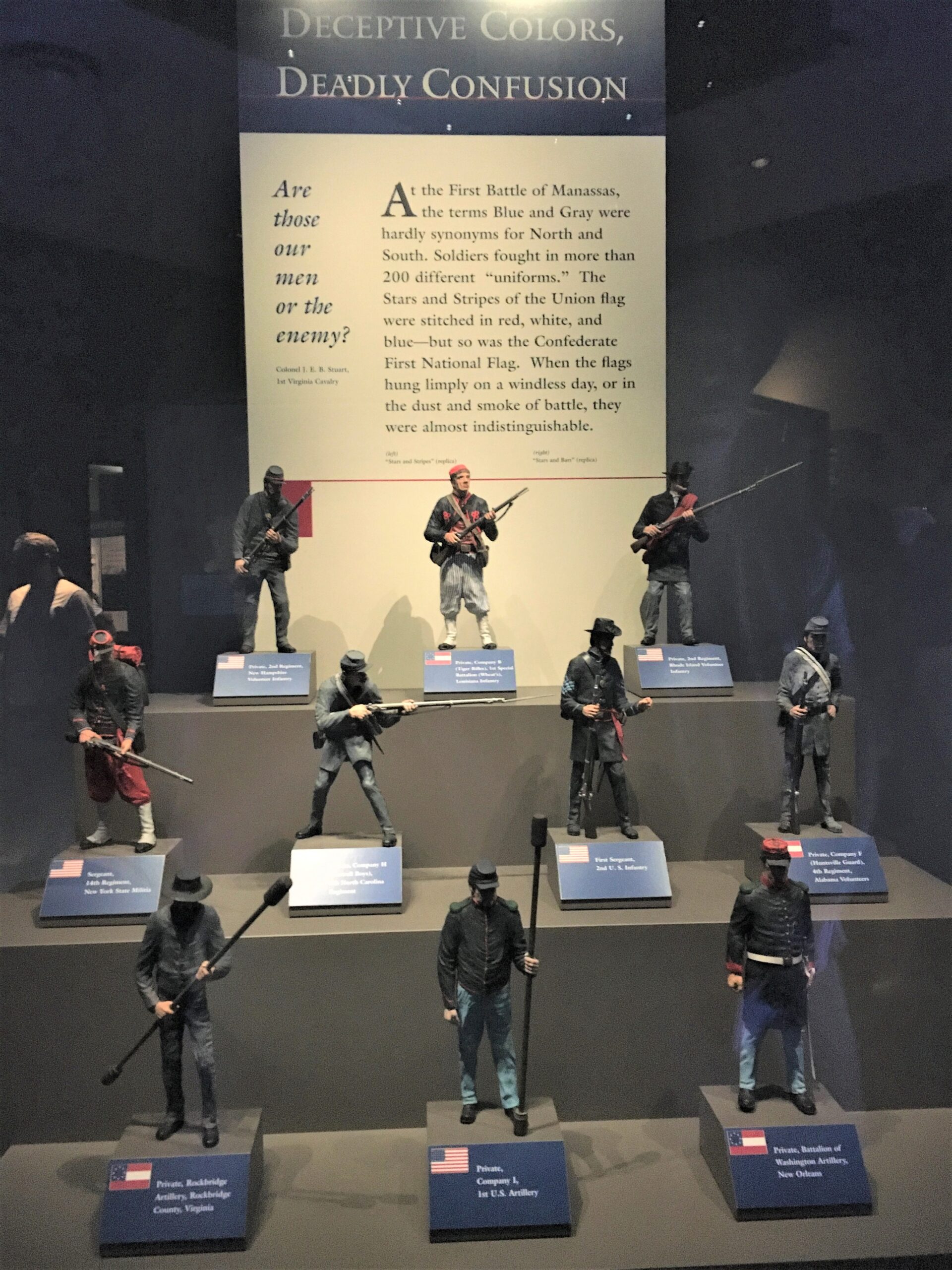
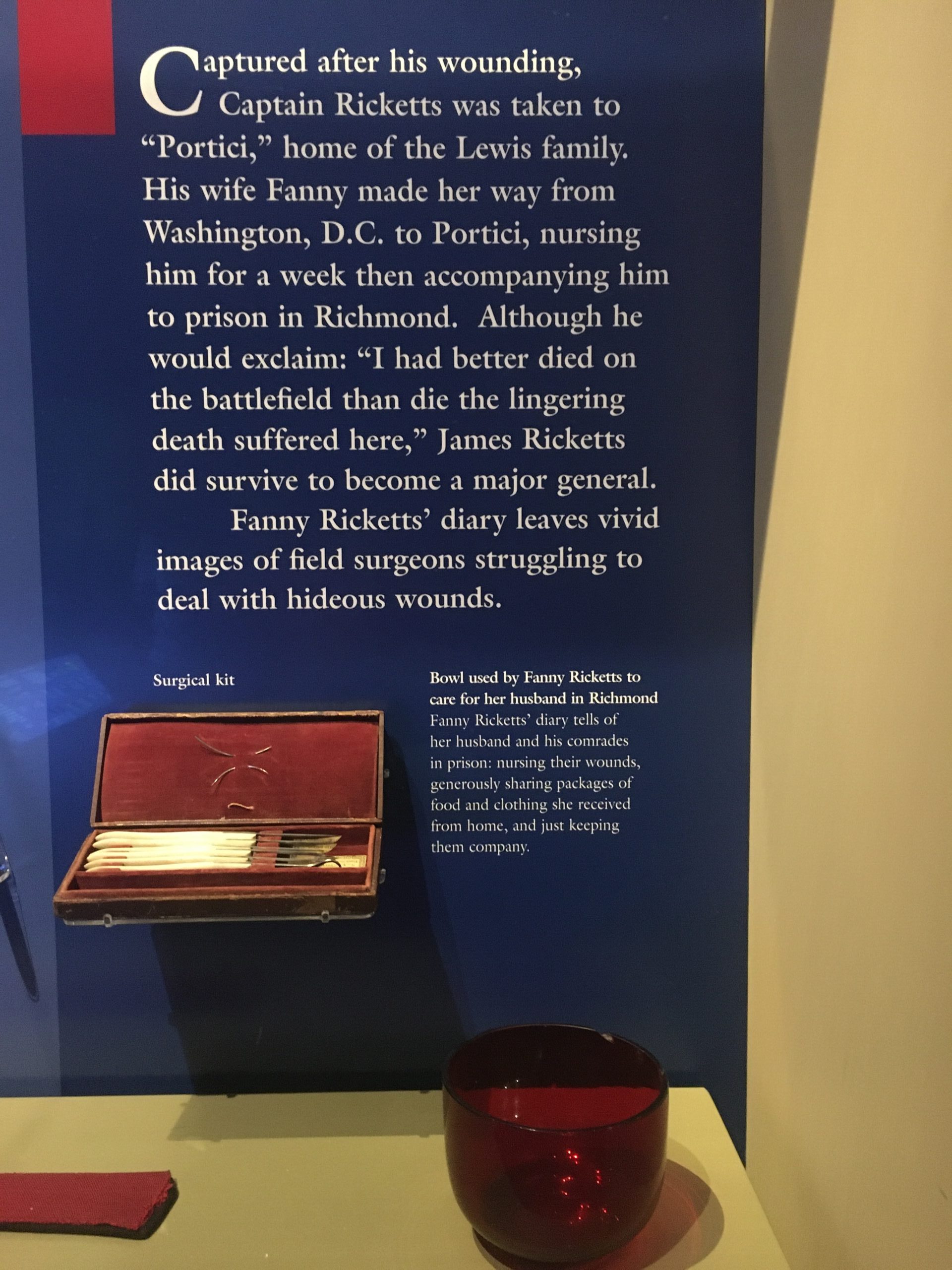
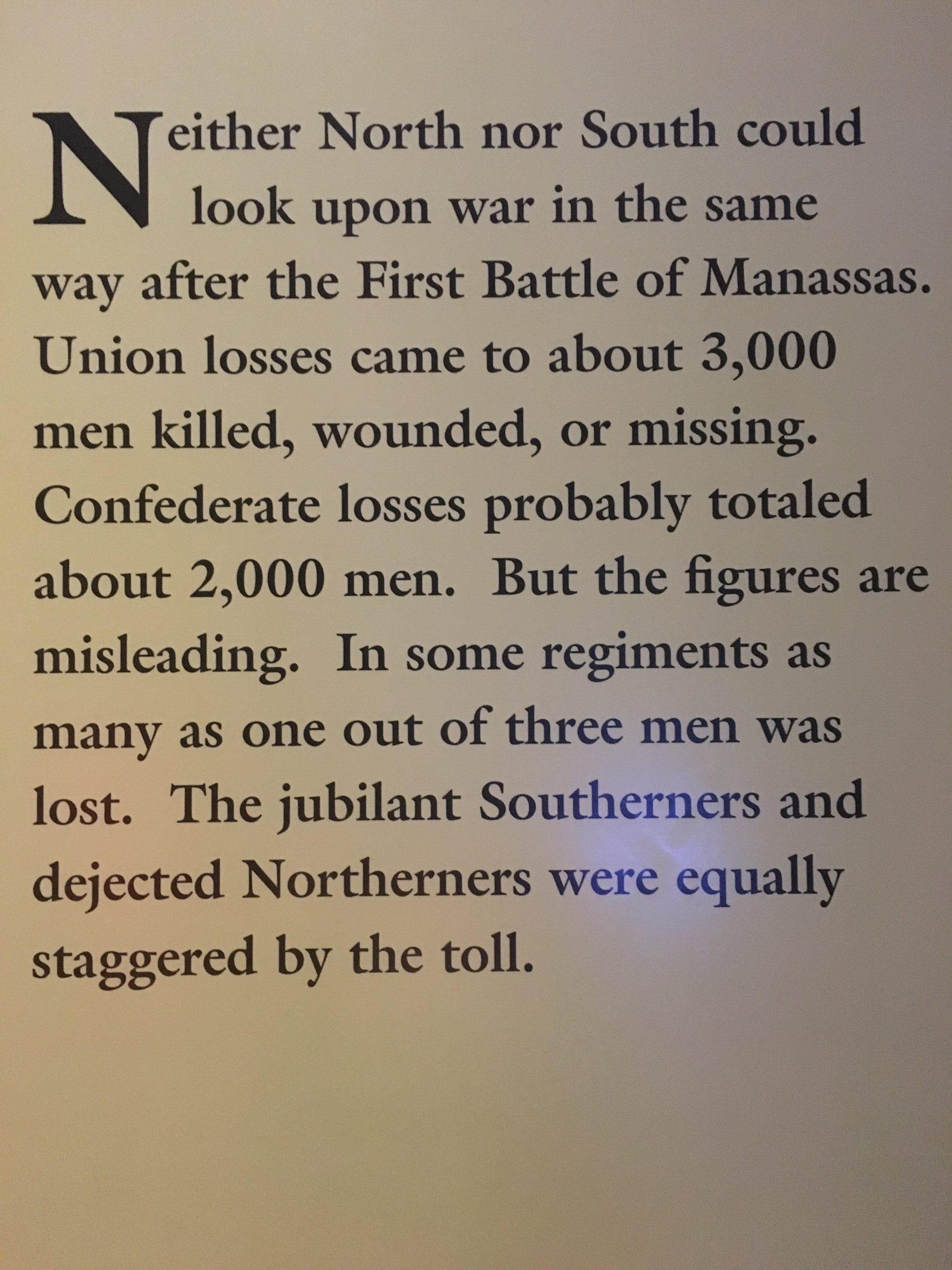
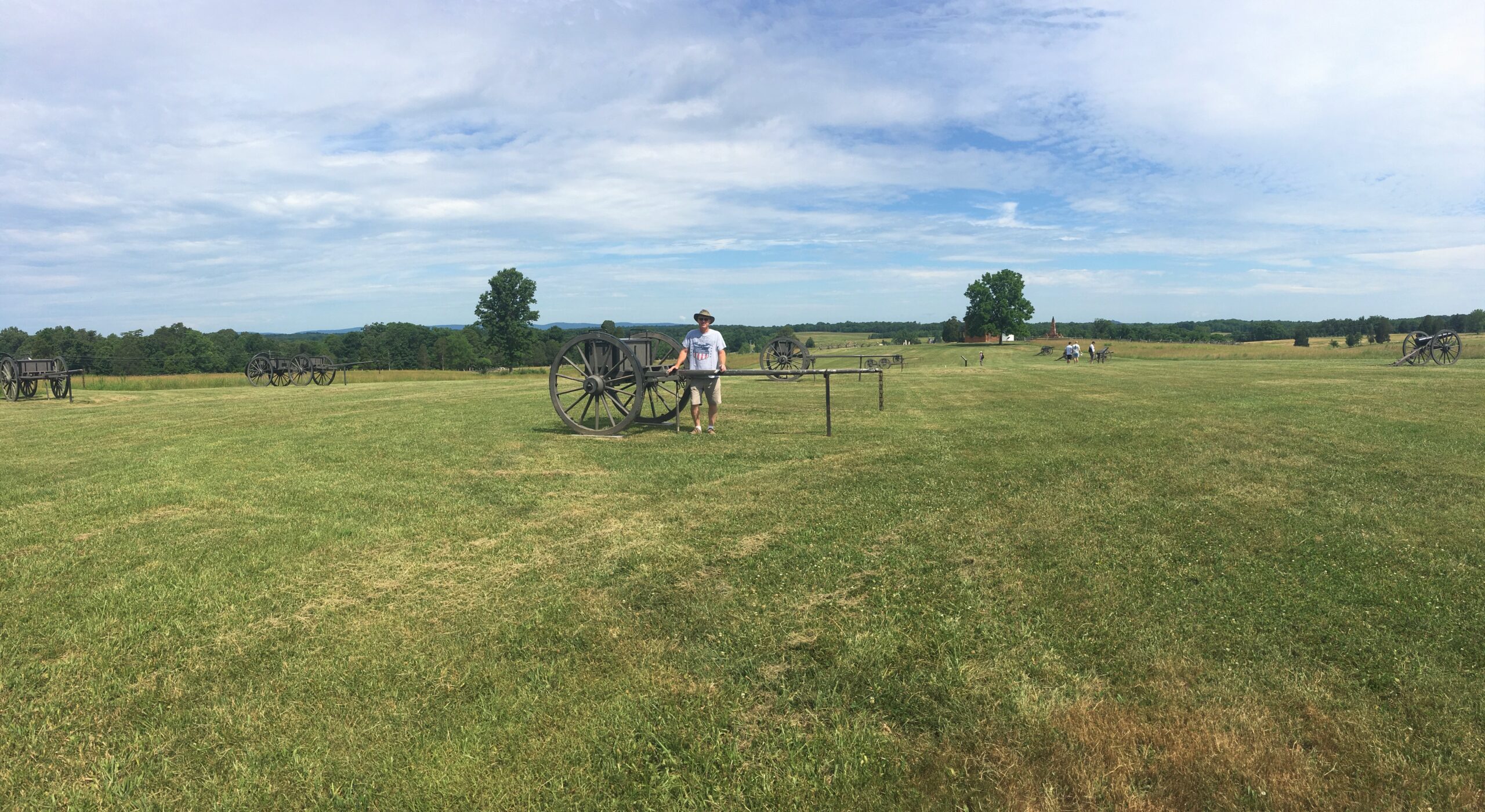
She kept the information informative, but with a bit of humor at times to keep our attention.
This is where we met for the tour.
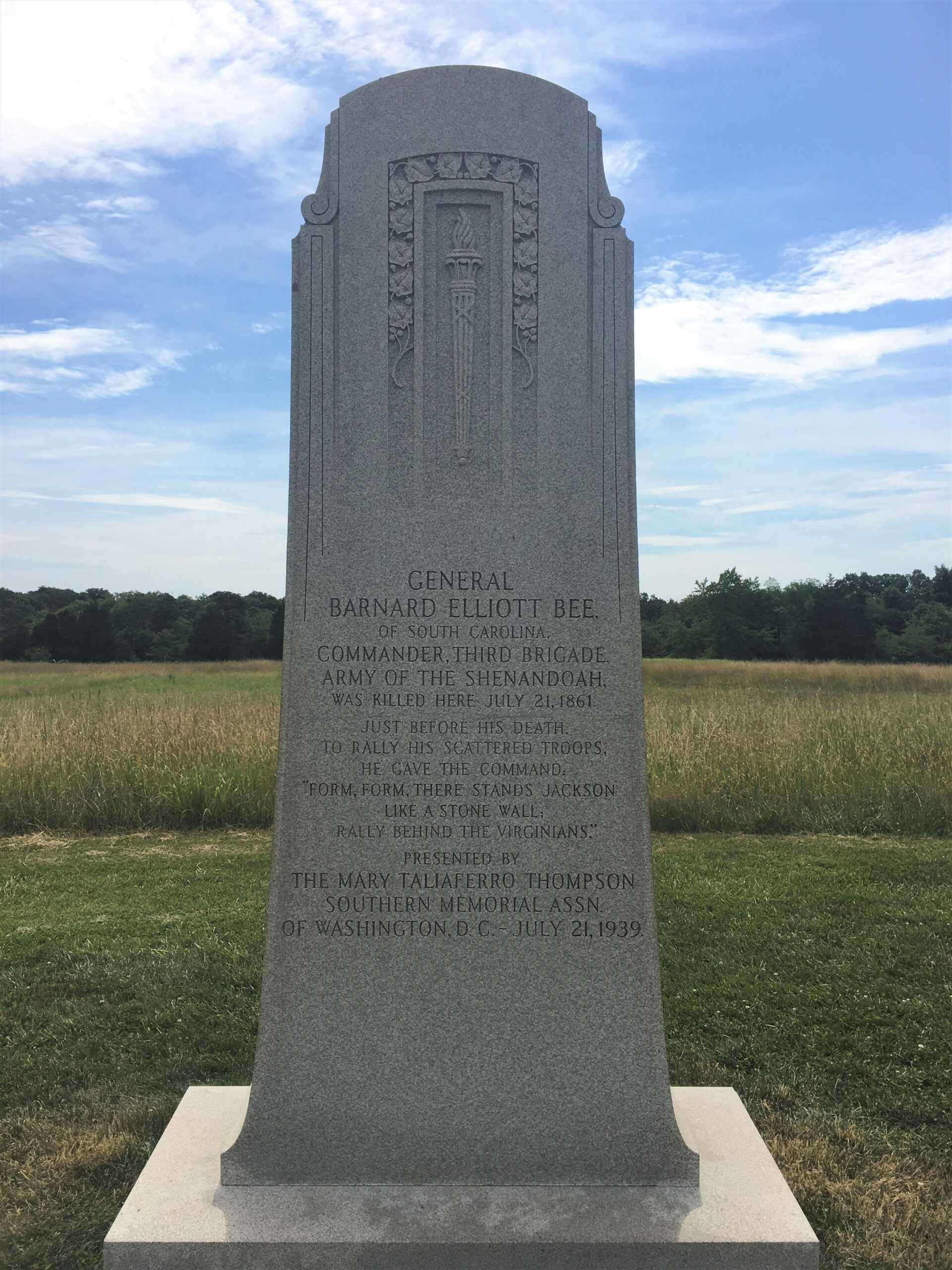
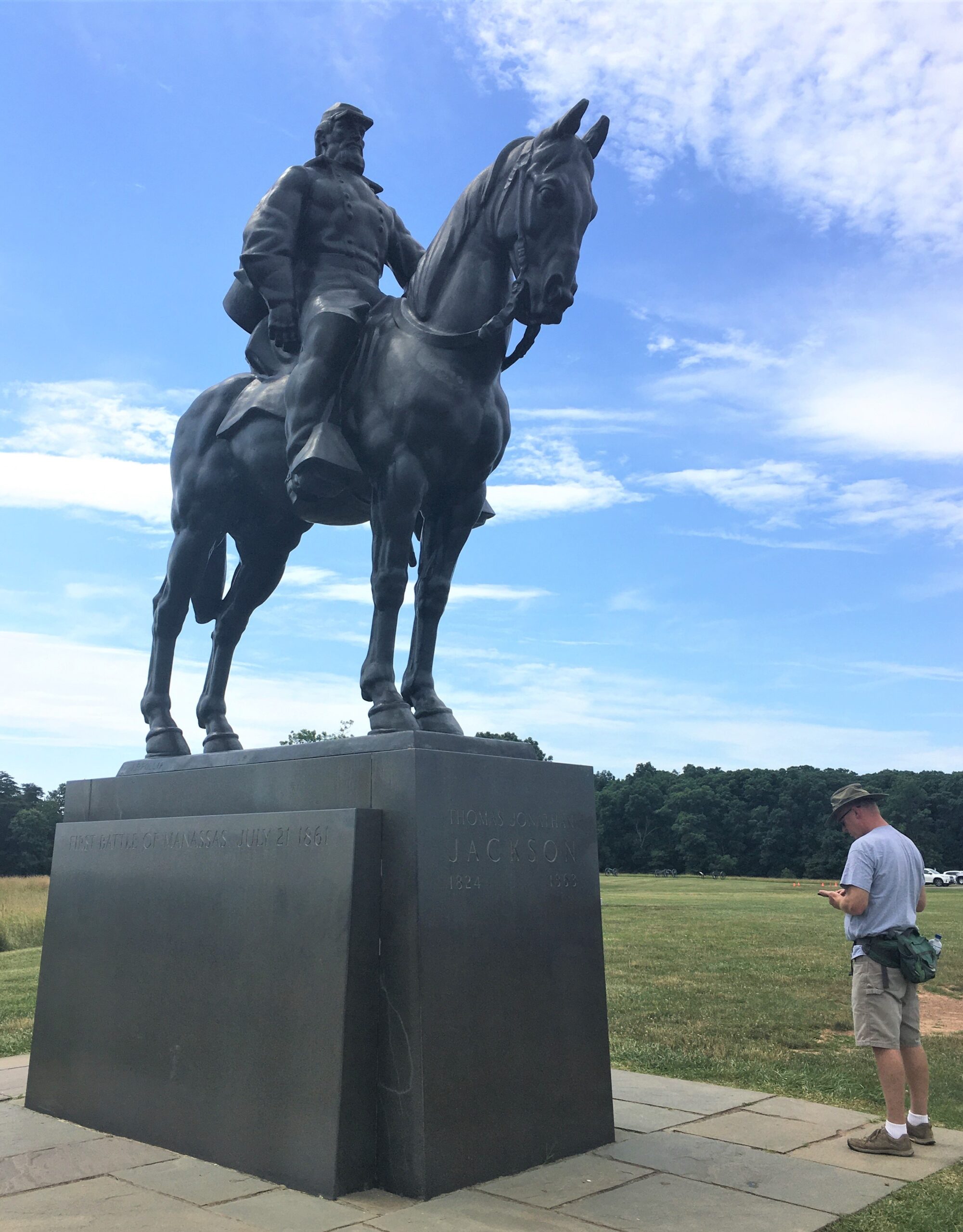
Did you ever hear how he acquired the nickname that stuck with him for life?
It was here, at Manassas.
While the war was raging and men wanted to run, he sat upon his trusted steed and refused to move,
giving courage to his men. Someone later wrote – “He was like a stone wall.”
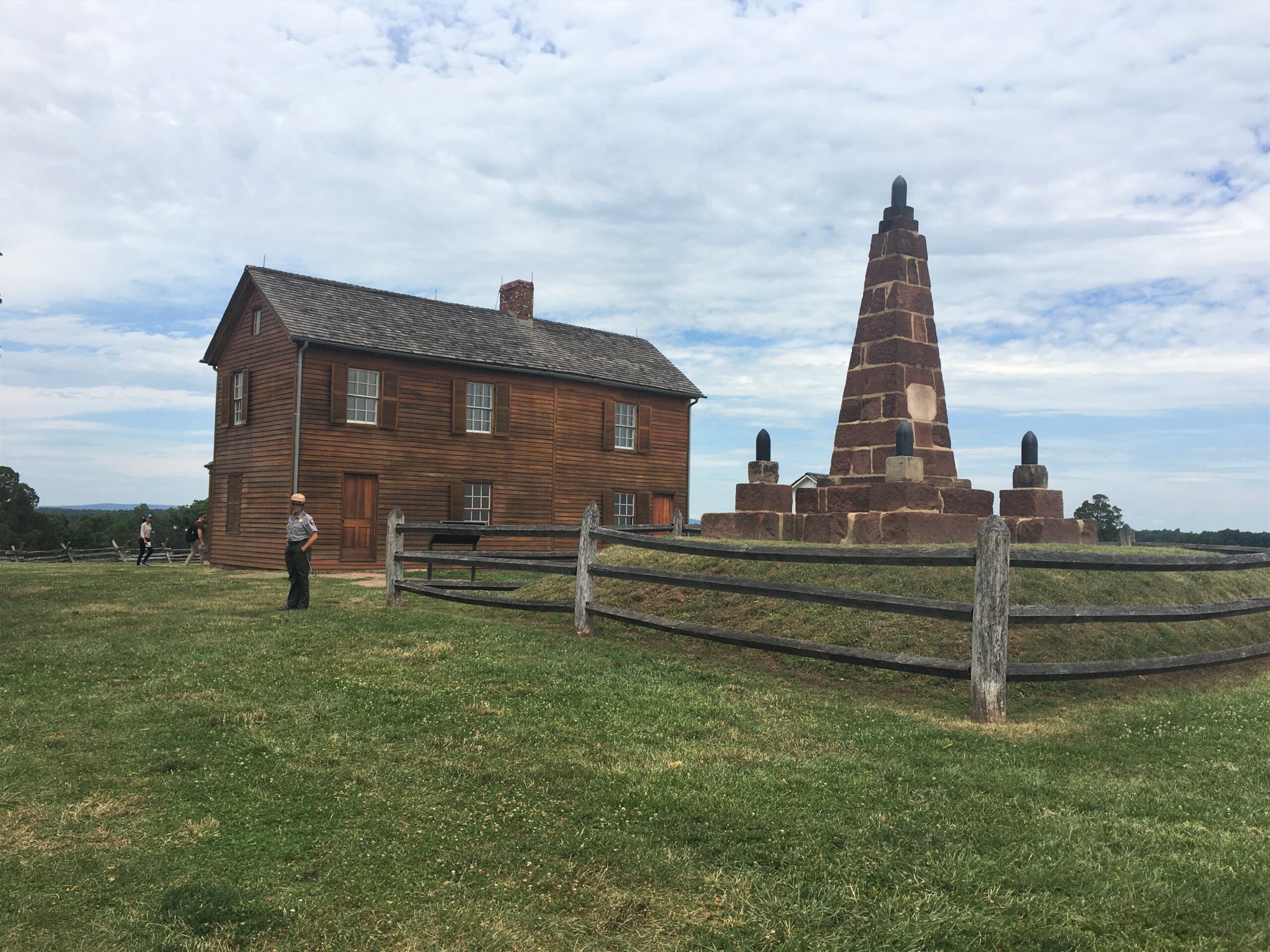
The house is the former home of Judith Henry. She was the first civilian casualty of the Civil War, when bedridden and infirm, she refused to be moved from her house when the battle began. She was killed when Captain James Rickett’s guns were turned on the house in an attempt to stop Confederate sharpshooters located in the house. Her daughter, also living here at the time, hid in the fireplace. They said she was hard of hearing the rest of her life, caused by the noise from all the gunfire magnified in the fireplace.
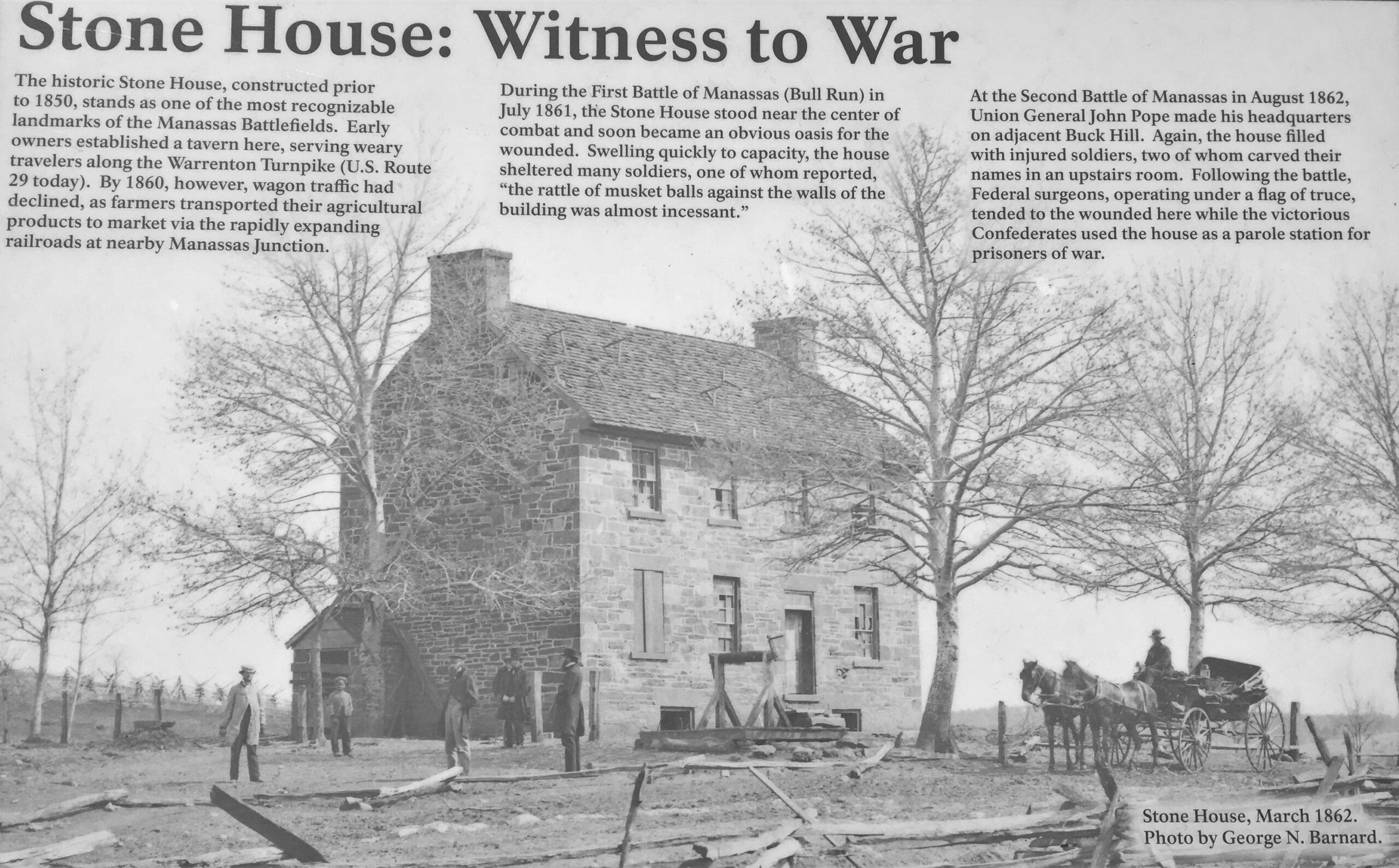
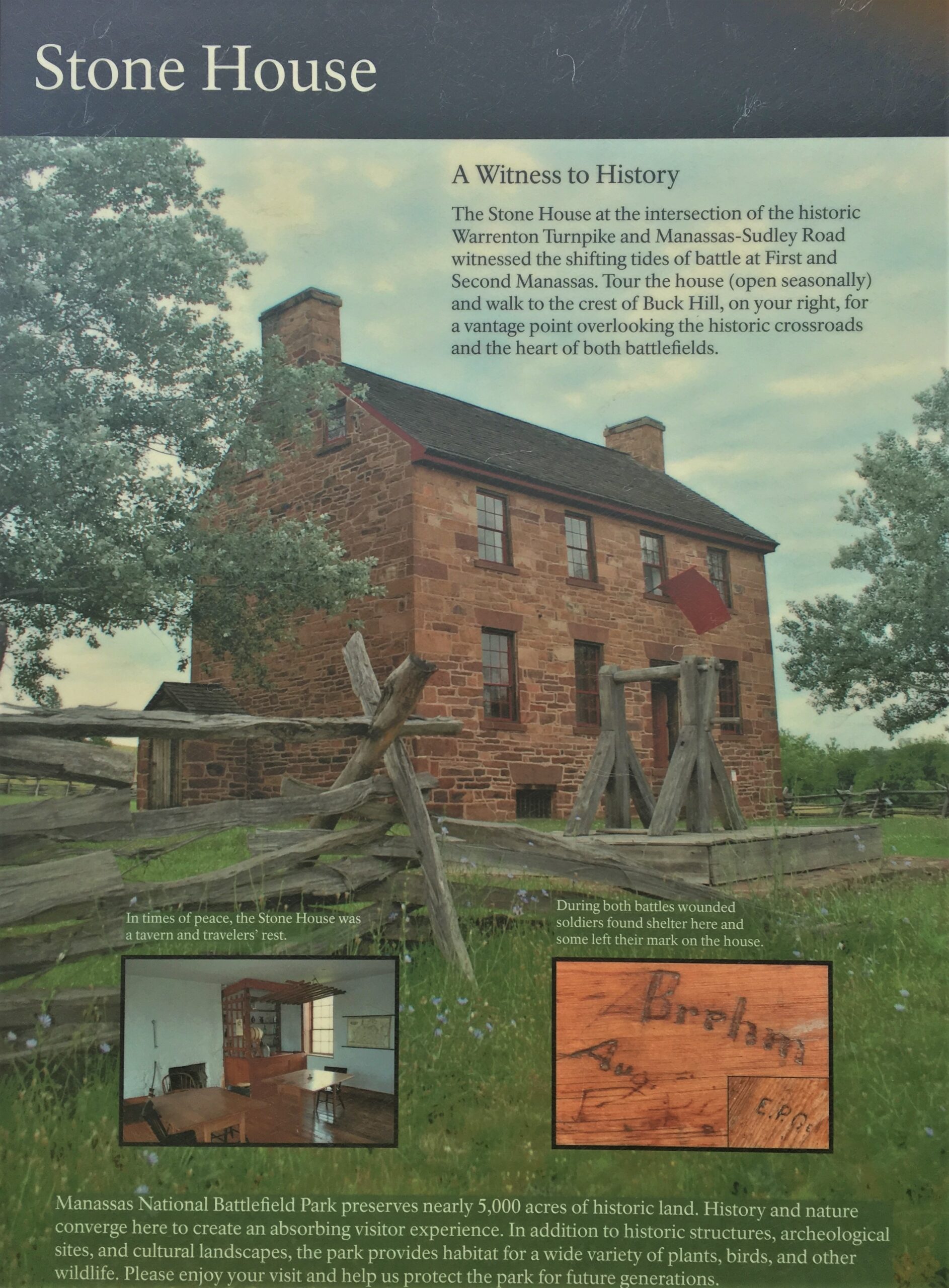
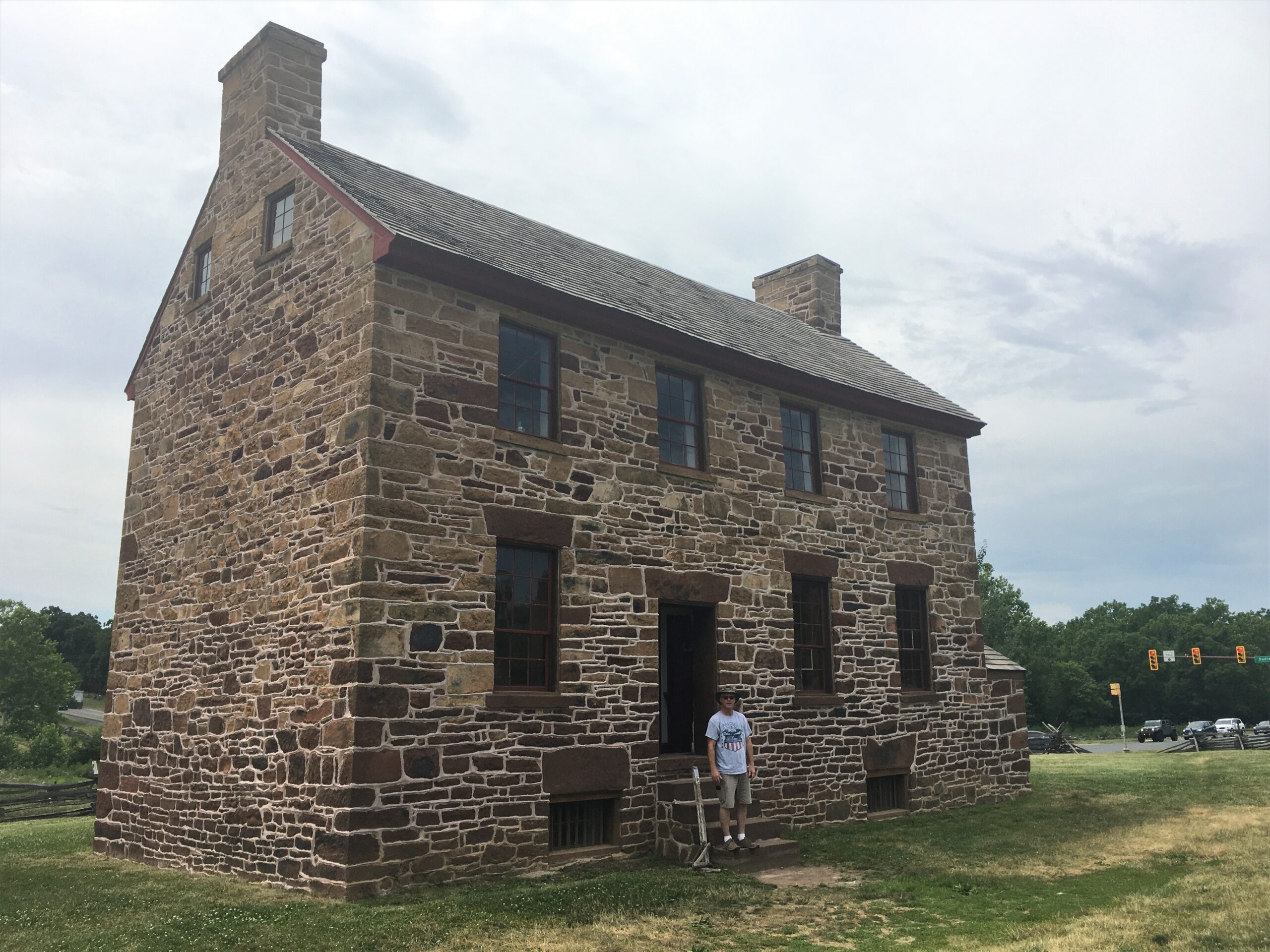
The next two pictures are from the inside.
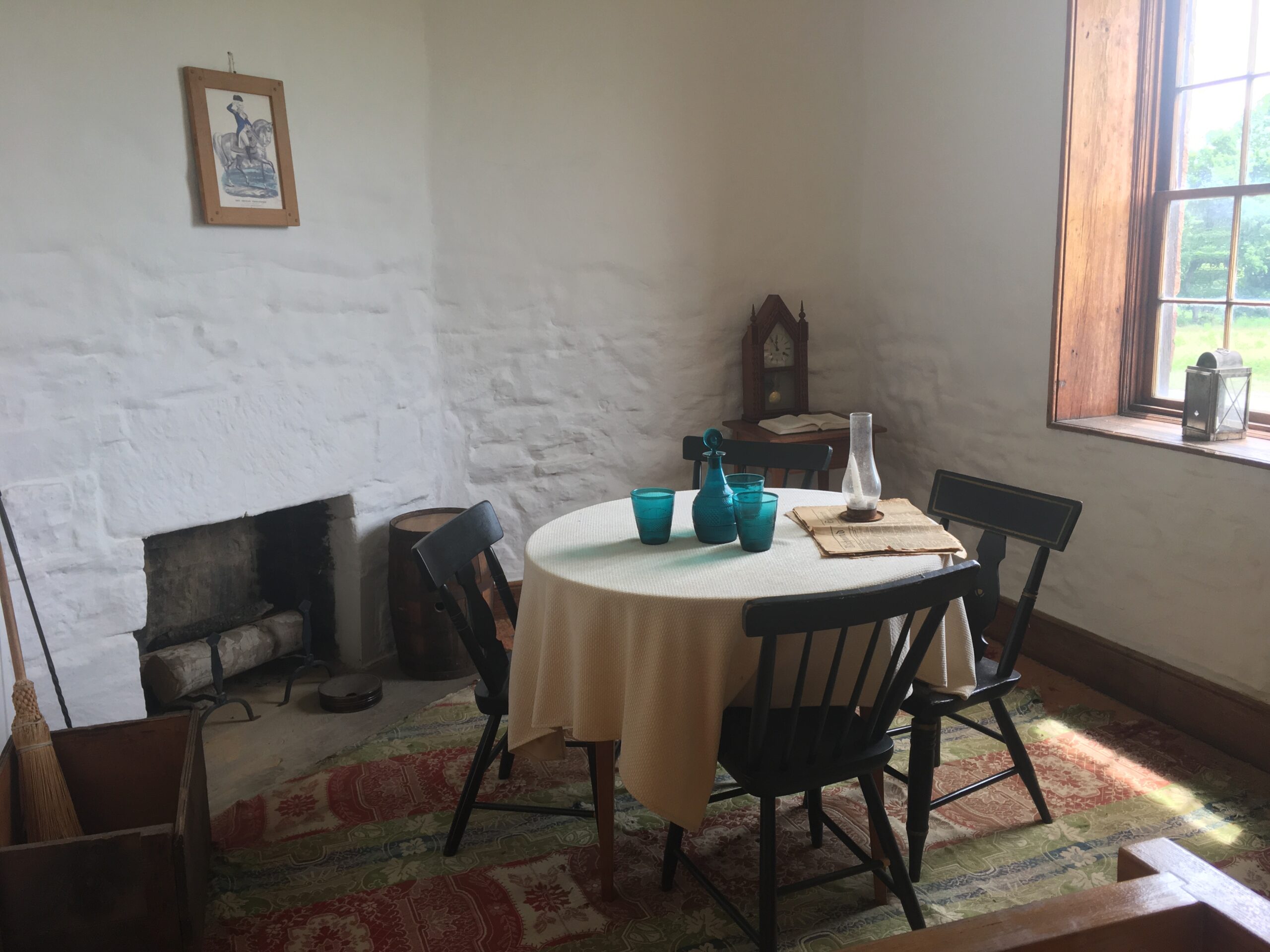
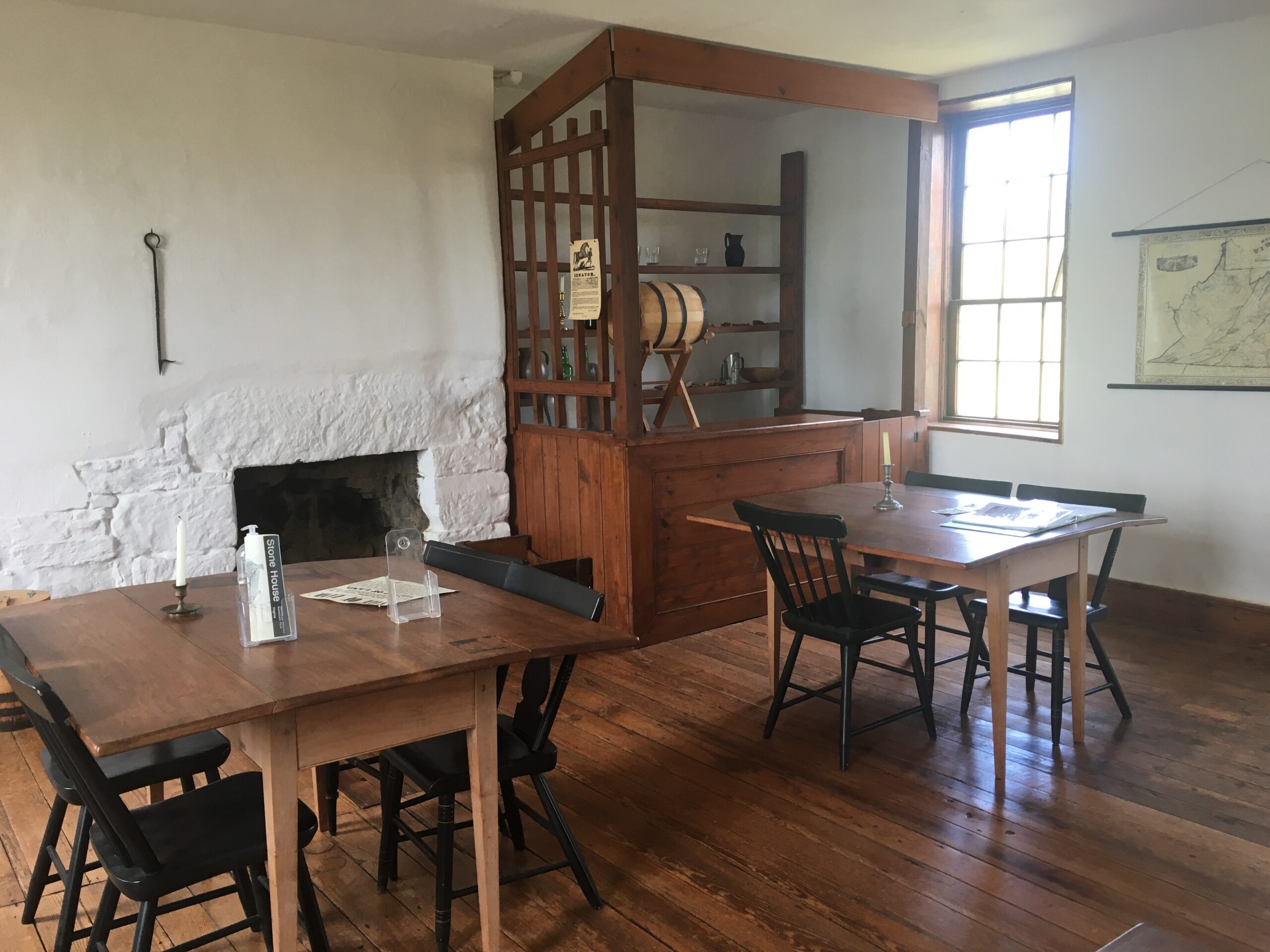
At the end of our day, we received pictures from home! Our younger son, Kyle and his family were out camping to celebrate the Forth of July holiday. Looks like they had a great time!

